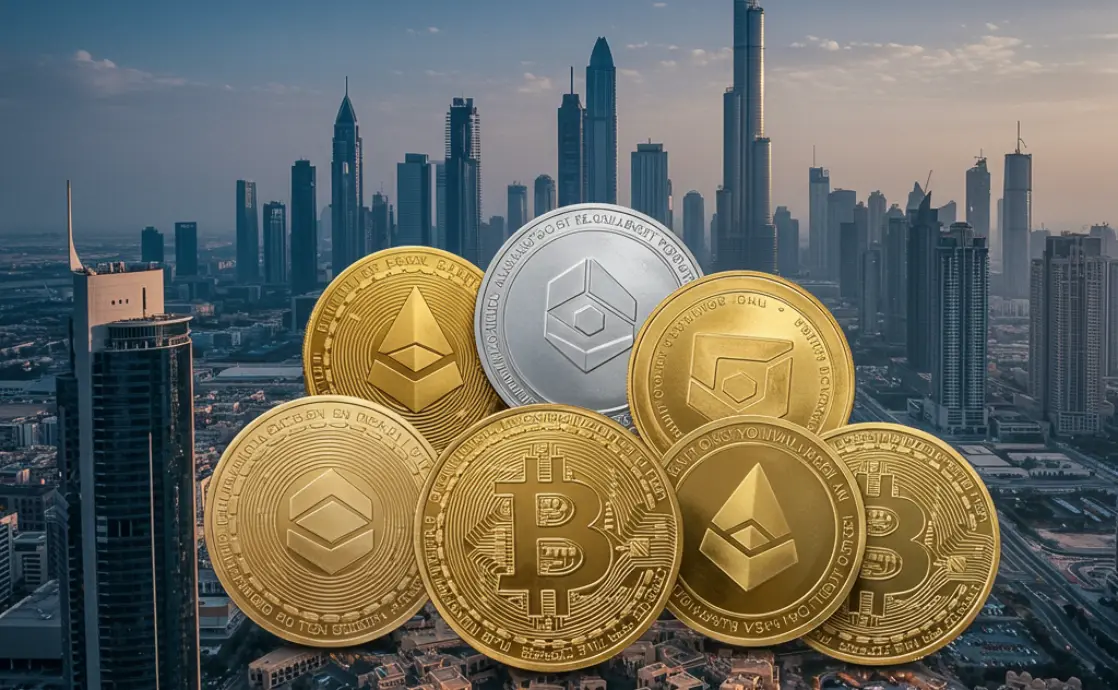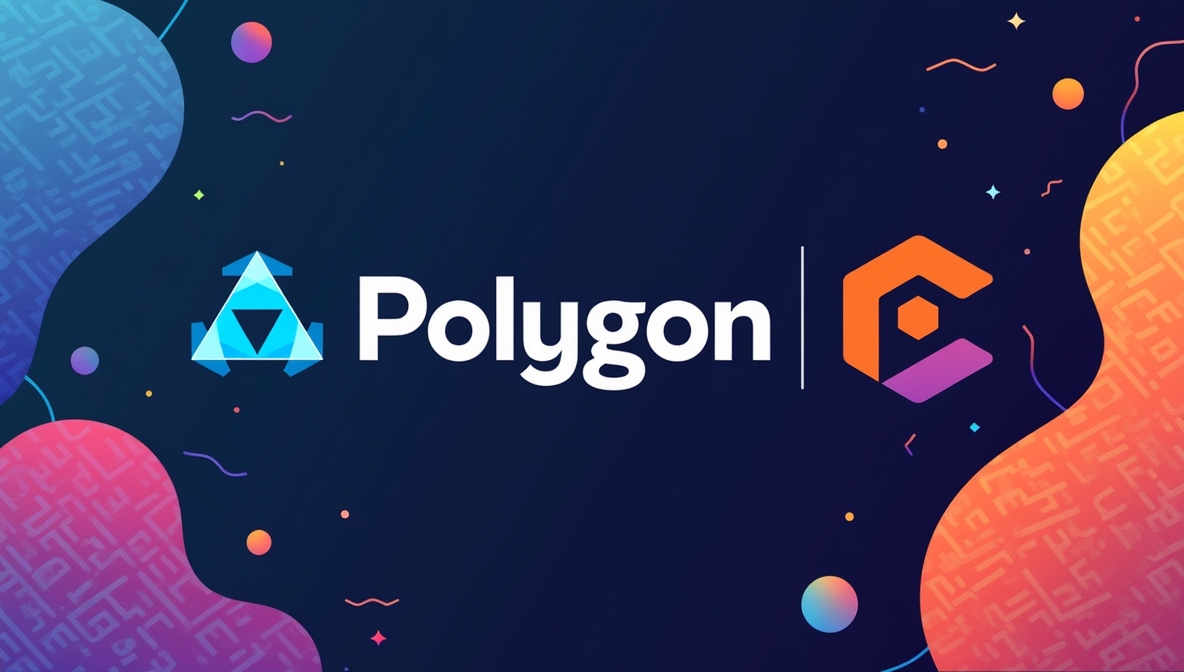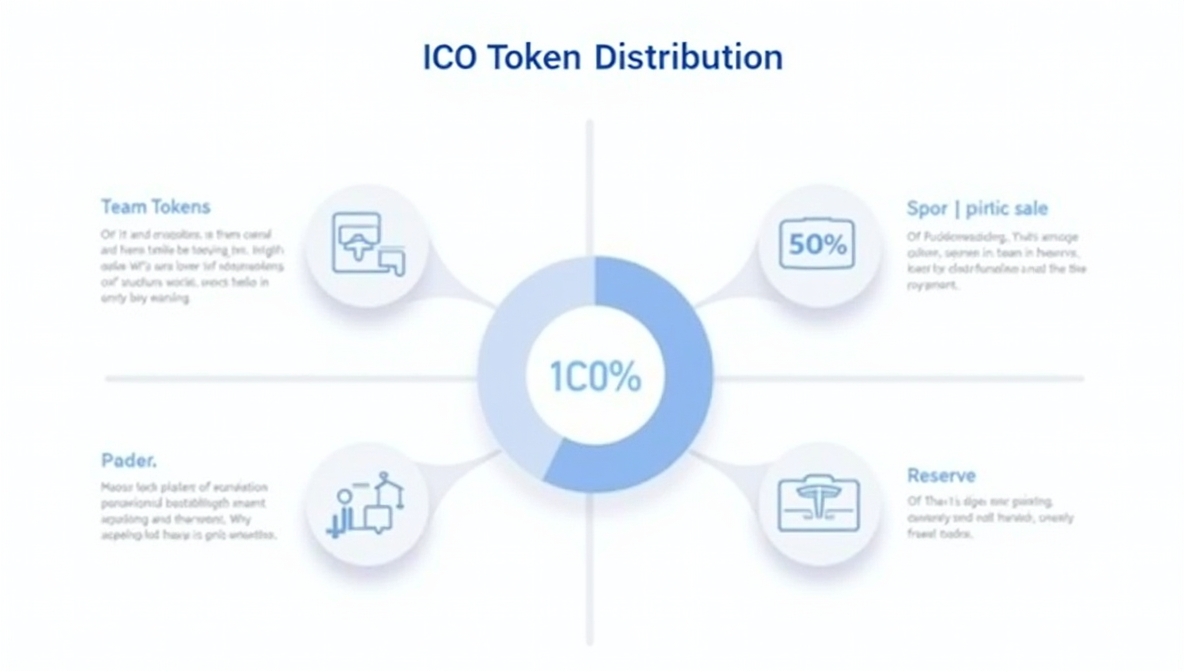Imagine owning a slice of a futuristic skyscraper or securing your financial agreements without intermediaries—all made possible through digital tokens and automated contracts. Welcome to the transformative world of Tokenization and Smart Contracts. These cutting-edge blockchain technologies are not just reshaping the financial landscape; they are revolutionizing industries worldwide by enhancing liquidity, automating complex agreements, and ensuring unprecedented levels of security and transparency.
In this comprehensive guide, we delve deep into Tokenization and Smart Contracts, exploring their definitions, processes, benefits, and the powerful synergy that amplifies their impact. Whether you’re a seasoned investor, a business owner, or a blockchain enthusiast, this article offers valuable insights, real-world case studies, and actionable strategies to harness the full potential of these technologies. Join us as we uncover how tokenization and smart contracts are set to redefine the future of finance and beyond.
What Is Tokenization?
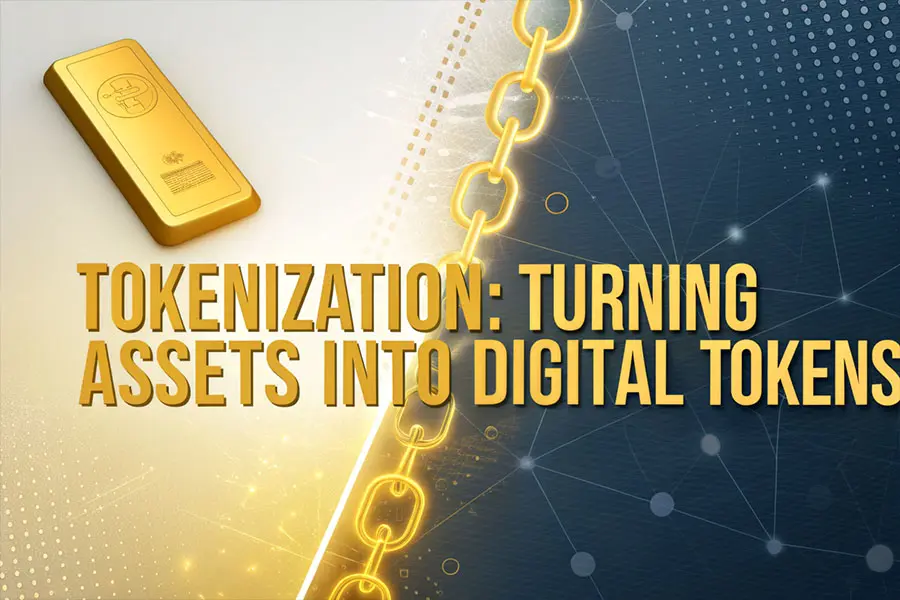
Definition of Tokenization
Tokenization is the process of converting physical or intangible assets into digital tokens that reside on a blockchain. Each token represents a fraction of the asset, enabling fractional ownership and making it easier to buy, sell, or trade these assets in a digital format. This transformation not only democratizes access to high-value assets but also enhances their liquidity and marketability.
For instance, a $10 million commercial property can be tokenized into 10,000 tokens, each worth $1,000. This allows a broader range of investors to participate in the real estate market without the need for substantial capital.
Explanation of the Tokenization Process
The tokenization process involves several key steps that ensure the secure and compliant conversion of assets into digital tokens:
- Asset Valuation and Selection: Determining the asset’s value and suitability for tokenization.
- Digital Token Creation: Developing tokens on a blockchain platform that accurately represent the asset.
- Regulatory Compliance: Ensuring that the tokenization process adheres to relevant laws and regulations.
- Token Issuance and Distribution: Launching the tokens to investors through platforms or exchanges.
- Ongoing Management: Maintaining the token’s value and ensuring transparent transactions.
Pro Tip: When considering Asset Tokenization with Smart Contracts, it’s crucial to select a reputable blockchain platform that offers robust security features and regulatory compliance to safeguard your investments.
Types of Assets Suitable for Tokenization
Tokenization isn’t limited to traditional financial assets. A diverse range of assets can be tokenized, including:
- Real Estate: Residential and commercial properties.
- Financial Instruments: Stocks, bonds, and derivatives.
- Intellectual Property: Patents, copyrights, and trademarks.
- Collectibles: Art, luxury goods, and rare items.
- Commodities: Precious metals, oil, and agricultural products.
- Digital Assets: Cryptocurrencies and digital art (NFTs).
Benefits of Tokenization
Increased Liquidity
Tokenization transforms traditionally illiquid assets into highly liquid digital tokens, allowing for easier buying, selling, and trading. This increased liquidity makes it more attractive for investors, as they can quickly enter or exit positions without significant delays. According to a report by Deloitte, the tokenization market is expected to reach $24 trillion by 2030, driven largely by enhanced liquidity and accessibility.
Fractional Ownership
By breaking down high-value assets into smaller, affordable tokens, Asset Tokenization with Smart Contracts enables fractional ownership. This democratizes access, allowing a broader range of investors to participate in markets that were previously inaccessible due to high entry barriers. For example, individual investors can now own a fraction of commercial real estate or high-value artwork, diversifying their investment portfolios without needing substantial capital.
Enhanced Transparency
Blockchain technology, the backbone of tokenization, ensures that all transactions are recorded on a transparent and immutable ledger. This transparency reduces the risk of fraud, enhances trust among investors, and simplifies auditing processes. A study by PwC highlights that blockchain can reduce audit costs by up to 30% through increased transparency and traceability.
Reduced Transaction Costs
Tokenization eliminates the need for intermediaries such as brokers and custodians, significantly reducing transaction costs. Smart Contracts further streamline processes by automating tasks, which minimizes the need for manual intervention and associated fees. According to Accenture, blockchain technology can reduce transaction costs by up to 30% by eliminating middlemen and automating processes.
Pro Tip: Leveraging tokenization can lead to substantial cost savings, especially in industries with high transaction fees and lengthy settlement periods.
Real-World Examples and Case Studies
Propy: Revolutionizing Real Estate Transactions
Propy is a pioneering real estate platform that utilizes Smart Contracts to facilitate property transactions. By tokenizing real estate assets, Propy enables investors worldwide to purchase fractions of properties seamlessly. Their blockchain-based system ensures that all transactions are transparent, secure, and compliant with local regulations. In 2017, Propy successfully facilitated the first-ever blockchain-based real estate sale in Ukraine, demonstrating the practical application of tokenization and smart contracts in real estate.
Artory: Managing Tokenized Art Pieces
Artory is an innovative platform that manages tokenized art pieces. By creating digital tokens representing ownership of artwork, Artory ensures authenticity and provenance. This not only protects artists and collectors from fraud but also allows for fractional ownership, making high-value art accessible to a broader audience. Artory collaborates with major art institutions to provide secure and transparent records of art ownership, leveraging blockchain technology to enhance trust and transparency in the art market.
Understanding Smart Contracts
Smart contracts leverage blockchain technology to provide a secure, transparent, and immutable environment, ensuring that all parties can trust the execution of the contract without third-party oversight.
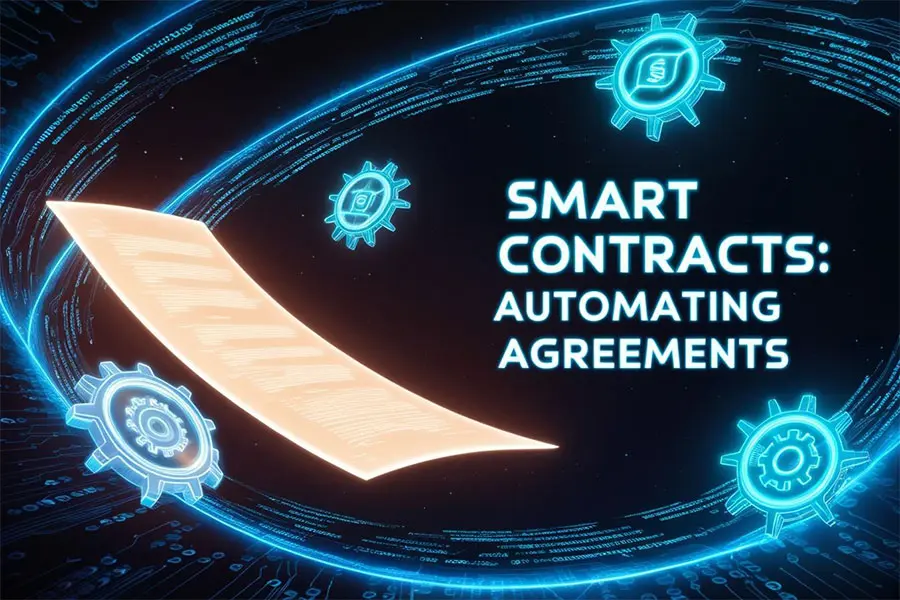
Definition and Functionality
A smart contract is a self-executing digital agreement where the terms and conditions are directly written into code. These contracts automatically enforce and execute the agreed-upon terms when predefined conditions are met, eliminating the need for intermediaries.
Imagine a scenario where rental payments are automatically transferred from a tenant to a landlord each month without manual intervention. This is the power of smart contracts in action.
How Smart Contracts Operate on Blockchain
Smart Contracts operate on blockchain platforms, utilizing the decentralized and secure nature of the technology to ensure trust and reliability. Here’s a simplified overview of their operation:
- Agreement Terms: Parties agree on the terms and conditions of the contract.
- Coding the Contract: The agreed terms are translated into code and deployed on a blockchain.
- Condition Monitoring: The blockchain monitors for the fulfillment of predefined conditions.
- Automatic Execution: Once conditions are met, the smart contract automatically executes the necessary actions, such as transferring funds or updating records.
Advantages of Using Smart Contracts
Automation
Smart Contracts automate the execution of agreements, reducing the need for manual processes. This automation accelerates transactions, minimizes human error, and ensures that agreements are executed precisely as intended. According to IBM, smart contracts can automate up to 80% of manual processes in various industries, leading to significant efficiency gains.
Security
Built on blockchain’s immutable ledger, smart contracts offer high security. The decentralized nature of blockchain ensures that contracts are tamper-proof and resistant to unauthorized alterations, enhancing the overall security of transactions. A report by Deloitte notes that blockchain-based smart contracts can reduce fraud risks by up to 50% compared to traditional contracts.
Efficiency
By removing intermediaries and automating processes, smart contracts significantly improve operational efficiency. Transactions are processed faster, and the streamlined workflow reduces delays and associated costs. Gartner predicts that by 2025, smart contracts will automate 70% of all financial agreements, leading to substantial cost and time savings.
Pro Tip: Start by implementing smart contracts for simple, repetitive tasks within your business operations to experience immediate efficiency gains before expanding to more complex applications.
Real-World Example: SEC’s Exploration of Smart Contracts
The U.S. Securities and Exchange Commission (SEC) has been exploring the use of smart contracts to streamline regulatory compliance and enhance transparency in financial transactions. By automating compliance checks and reporting, smart contracts can significantly reduce the burden on financial institutions and improve regulatory oversight. For instance, smart contracts can automatically enforce Know Your Customer (KYC) and Anti-Money Laundering (AML) requirements, ensuring that all transactions comply with regulatory standards without manual intervention.
The Synergy Between Tokenization and Smart Contracts
The integration of tokenization and smart contracts creates a powerful synergy that amplifies the benefits of each technology, driving innovation and efficiency across various sectors. This synergy not only enhances the functionality of tokenized assets but also ensures seamless and secure operations within digital ecosystems.
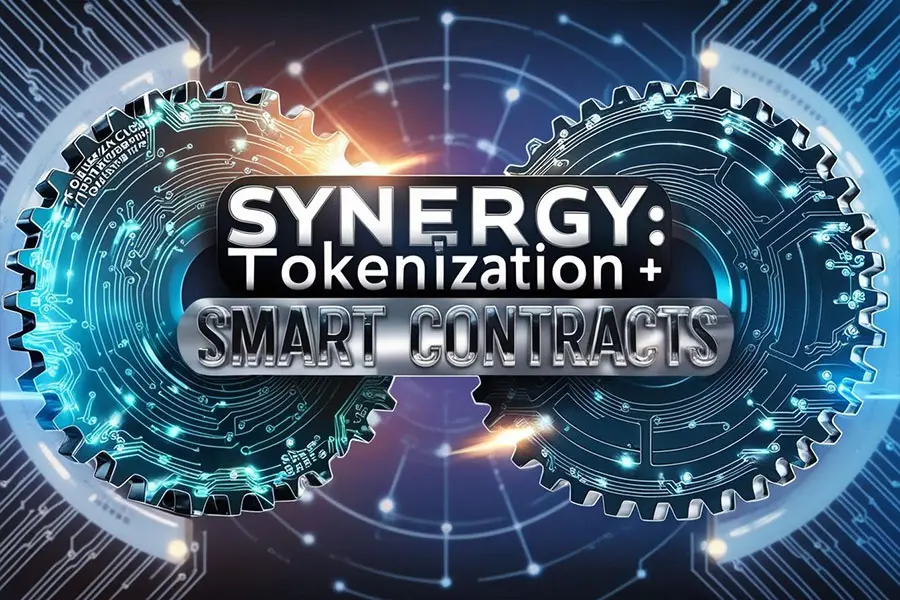
How Smart Contracts Facilitate Tokenization
Smart Contracts play a pivotal role in the tokenization process by automating various aspects, including token issuance, compliance checks, and transaction validation. They ensure that each token accurately represents a portion of the underlying asset and that all transactions adhere to predefined rules and regulations. This automation streamlines the tokenization process, reduces the potential for human error, and ensures regulatory compliance.
Impact of Smart Contracts on Token Distribution and Settlements
Efficient Token Distribution
Smart Contracts revolutionize token distribution by automating the entire process. When tokens are issued, smart contracts handle the allocation based on predefined criteria such as investor eligibility, investment amounts, and compliance checks. This automation not only eliminates manual errors but also ensures timely and accurate distribution of tokens to investors.
For example, during an Initial Token Offering (ITO), a smart contract can automatically distribute tokens to investors as soon as they make a purchase, ensuring a swift and reliable distribution process without the need for intermediaries.
Automated Settlements
Traditional settlement processes are often bogged down by multiple intermediaries, leading to delays and increased costs. Smart Contracts streamline settlements by executing transactions instantly once the agreed-upon conditions are met. This means that when an investor buys a token, the smart contract automatically transfers the corresponding number of tokens to their digital wallet upon verification of payment.
Imagine purchasing a tokenized share of a company. Once your payment is verified, a smart contract automatically transfers the exact number of tokens to your wallet, completing the settlement seamlessly and instantly.
Real-Time Compliance and Reporting
Smart Contracts embed compliance checks directly into the token distribution and settlement processes. They can be programmed to enforce Know Your Customer (KYC) and Anti-Money Laundering (AML) requirements in real-time, ensuring that every transaction adheres to regulatory standards. This real-time compliance not only reduces legal risks but also builds trust with investors by demonstrating a commitment to regulatory adherence.
For instance, a smart contract can verify an investor’s identity before allowing them to purchase tokens, ensuring that all regulatory requirements are met without manual intervention.
Automating Compliance and Regulatory Requirements
One of the significant challenges in tokenization is ensuring compliance with diverse and evolving regulatory frameworks. Smart Contracts embed compliance checks into the token issuance and transaction processes, automatically enforcing rules such as KYC (Know Your Customer) and AML (Anti-Money Laundering) requirements. This automation reduces legal risks and ensures that all transactions are conducted within the bounds of the law.
Examples of Tokenized Assets Managed by Smart Contracts
- Tokenized Real Estate: Smart Contracts facilitate the seamless transfer of ownership tokens upon payment, ensuring that all legal and financial requirements are met automatically.
- Tokenized Securities: Dividend distributions and interest payments are executed automatically through smart contracts, ensuring timely and accurate disbursements to token holders.
- Tokenized Art: Ownership and provenance of artwork are managed through smart contracts, ensuring authenticity and facilitating secure transactions between buyers and sellers.
Applications Across Industries
Tokenization is also opening doors for smaller investors to access high-value real estate markets, democratizing investment opportunities across borders.

Real Estate
Tokenization and Smart Contracts are revolutionizing the real estate sector by making property investments more accessible and efficient.
- Fractional Ownership: Investors can purchase fractions of high-value properties through tokens, enabling diversified portfolios without significant capital investment.
- Streamlined Transactions: Smart Contracts automate the buying and selling process, reducing paperwork, minimizing delays, and lowering transaction costs.
- Case Study: Propy Propy is a leading real estate platform that leverages tokenization and smart contracts to facilitate international property transactions. By tokenizing properties, Propy allows investors worldwide to buy fractional ownership, enhancing liquidity and broadening the investor base. In 2020, Propy facilitated the sale of a $1.2 million property in California using their blockchain-based platform, showcasing the practical benefits of tokenization and smart contracts in real estate.
Finance
The financial industry stands to gain immensely from the integration of tokenization and smart contracts.
- Tokenized Securities: Stocks, bonds, and other financial instruments can be tokenized, facilitating seamless trading and increased liquidity in capital markets.
- Decentralized Finance (DeFi) Platforms: Smart Contracts enable DeFi applications such as lending, borrowing, and yield farming without the need for traditional financial intermediaries.
- Case Study: Securitize Securitize is a platform that tokenizes securities, providing a compliant framework for issuing and managing digital securities. Their smart contracts handle compliance, dividend distribution, and transfer restrictions automatically, ensuring regulatory adherence and operational efficiency. Securitize has successfully tokenized over $1 billion in securities, demonstrating the scalability and effectiveness of their solutions.
Art and Collectibles
The art world is embracing tokenization to enhance accessibility and authenticity.
- Digital Ownership Certificates: Each piece of art is represented by a unique token, serving as a digital certificate of ownership that is easily transferable and verifiable.
- Marketplaces: Platforms for trading tokenized art and collectibles provide artists and collectors with new avenues for buying and selling their works.
- Case Study: Artory Artory utilizes blockchain technology to tokenize art pieces, ensuring provenance and authenticity. Their smart contracts manage ownership transfers and provide transparent records, reducing fraud and enhancing trust in the art market. By partnering with major art institutions, Artory has established a robust ecosystem for managing and trading tokenized art.
Supply Chain Management
Tokenization and Smart Contracts enhance transparency and efficiency in supply chains.
- Tracking Goods: Every step of a product’s journey is recorded on the blockchain, providing real-time visibility and traceability.
- Ensuring Authenticity: Tokens validate the authenticity of goods, reducing the risk of counterfeit products entering the market.
- Case Study: VeChain VeChain uses tokenization and smart contracts to track and verify products throughout the supply chain. By tokenizing each product, VeChain ensures transparency and authenticity, enhancing trust among consumers and stakeholders. For example, VeChain collaborates with luxury brands to track the authenticity of their products, preventing counterfeit goods from reaching the market.
Pro Tip: Implementing tokenization in supply chain management can significantly enhance traceability and trust among stakeholders, leading to improved operational efficiency and customer satisfaction.
Advanced Topics and Trends
Interoperability and Scalability
Different blockchain platforms are addressing interoperability and scalability challenges to ensure seamless integration and widespread adoption of tokenization and smart contracts. Solutions like Polkadot and Cosmos are enabling cross-chain communication, allowing tokens and smart contracts to operate across multiple blockchains without friction. Additionally, layer 2 solutions such as Lightning Network for Bitcoin and Plasma for Ethereum are enhancing scalability by handling transactions off the main blockchain, reducing congestion and increasing transaction speeds.
Decentralized Autonomous Organizations (DAOs)
DAOs leverage tokenization and smart contracts to manage decentralized governance and decision-making. By issuing governance tokens, DAOs enable stakeholders to vote on proposals and manage collective assets autonomously, fostering a more democratic and transparent organizational structure. For instance, MakerDAO uses governance tokens (MKR) to allow holders to vote on critical decisions regarding the Maker Protocol, demonstrating the practical application of DAOs in managing decentralized financial systems.
Impact of Emerging Technologies
Technologies like Artificial Intelligence (AI) and the Internet of Things (IoT) are integrating with tokenization and smart contracts to create more intelligent and responsive systems. For example, AI can enhance smart contract functionality by enabling predictive analytics and automated decision-making, while IoT devices can trigger smart contracts based on real-time data inputs. This integration can lead to the development of more sophisticated and adaptive blockchain-based solutions, driving further innovation and efficiency across various industries.
Challenges and Considerations
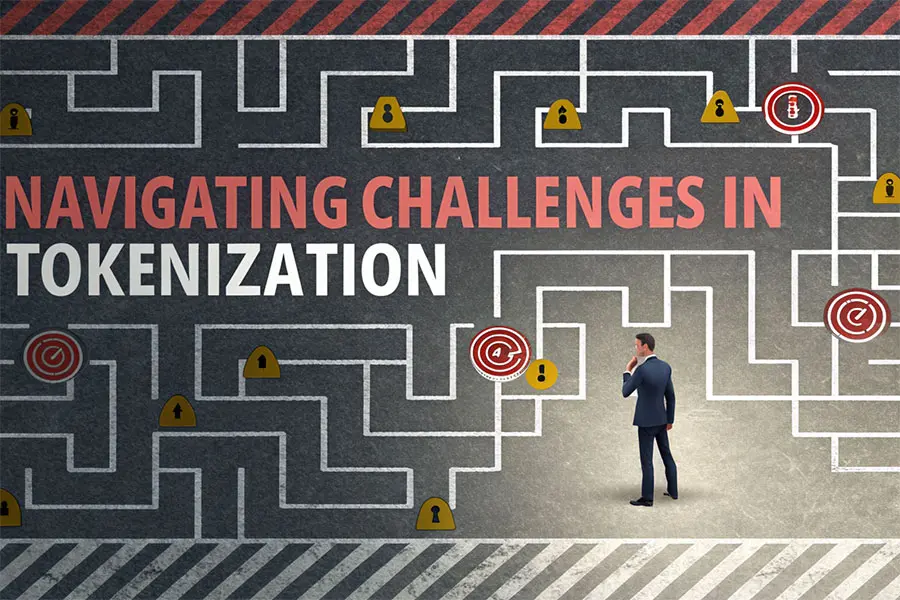
Understand the hurdles in tokenization and smart contracts, from regulatory issues to technological limitations.
Regulatory and Legal Hurdles
Navigating the complex and varied regulatory landscapes across different regions poses a significant challenge for tokenization and smart contracts. Compliance with securities laws, tax regulations, and data protection laws requires thorough research and adaptation, often necessitating legal expertise to ensure adherence.
Recent Developments
Regulatory frameworks are continually evolving to address the unique challenges posed by blockchain technologies. For instance, the U.S. Securities and Exchange Commission (SEC) has been actively exploring guidelines for tokenized securities to ensure investor protection and market integrity. In 2023, the SEC clarified that many tokens may fall under securities regulations, requiring compliance with existing securities laws. Similarly, the European Union’s MiCA (Markets in Crypto-Assets) regulation aims to create a comprehensive regulatory framework for crypto-assets, including tokenization and smart contracts, providing clarity and consistency across EU member states.
Compliance Best Practices
- Collaborate with Legal Experts: Partnering with legal professionals who specialize in blockchain and cryptocurrency can help navigate the regulatory landscape effectively.
- Leverage Blockchain’s Transparency: Utilize blockchain’s inherent transparency to meet compliance requirements, such as implementing real-time KYC and AML checks within smart contracts.
- Stay Informed: Regularly update your knowledge on regulatory changes and ensure that your tokenization and smart contract solutions remain compliant with the latest laws and guidelines.
Technological Limitations
While blockchain technology offers numerous advantages, it is not without its limitations. Scalability issues, interoperability challenges between different blockchain platforms, and the energy consumption associated with certain blockchain protocols can hinder widespread adoption and efficiency.
Scalability Solutions
- Layer 2 Solutions: Technologies like Lightning Network for Bitcoin or Plasma for Ethereum aim to enhance scalability by handling transactions off the main blockchain, reducing congestion and increasing transaction speeds.
- Sharding: Dividing the blockchain into smaller, manageable pieces called shards can improve scalability by allowing parallel processing of transactions. Ethereum 2.0’s implementation of sharding is a prime example of addressing scalability issues to support a higher volume of transactions.
Interoperability Efforts
- Cross-Chain Protocols: Projects like Polkadot and Cosmos are developing protocols that enable different blockchains to communicate and interact seamlessly, enhancing interoperability and expanding the functionality of tokenization and smart contracts.
- Blockchain Bridges: These are specialized protocols that allow different blockchains to exchange information and value securely, facilitating the transfer of tokens and execution of smart contracts across multiple platforms.
Security Concerns
Despite the inherent security of blockchain, tokenized platforms must remain vigilant against cyber threats. Vulnerabilities in smart contract code, potential hacks, and data breaches are ongoing risks that require robust security measures and continuous monitoring.
Enhancing Security Measures
- Regular Smart Contract Audits: Conduct thorough audits of smart contract code to identify and rectify vulnerabilities before deployment. Companies like CertiK and OpenZeppelin offer specialized auditing services to ensure the security and reliability of smart contracts.
- Multi-Signature Wallets: Implement multi-signature authentication to add an extra layer of security for managing digital assets. This requires multiple parties to approve a transaction, reducing the risk of unauthorized access.
- Secure Blockchain Platforms: Choose blockchain platforms with strong security protocols and a proven track record of safeguarding assets. Platforms like Ethereum, with its extensive developer community and security measures, are often preferred for their robustness and reliability.
Market Adoption and Trust Issues
The success of tokenization and smart contracts depends on widespread market adoption and trust. Overcoming skepticism, educating stakeholders about the benefits and functionalities, and demonstrating tangible value are essential for gaining acceptance and fostering trust in these technologies.
Strategies to Enhance Adoption and Trust
- Build Reputable Partnerships: Collaborate with established organizations and industry leaders to build credibility and trust in your tokenization and smart contract solutions.
- Invest in Education: Provide educational resources and training to stakeholders to increase their understanding and confidence in using tokenization and smart contracts.
- Demonstrate Value: Showcase success stories and real-world applications that highlight the tangible benefits and practical advantages of these technologies.
Pro Tip: Building partnerships with reputable organizations and investing in comprehensive security measures can enhance trust and accelerate market adoption of your tokenization and smart contract solutions.
Future Outlook
As tokenization continues to evolve, regulatory frameworks will adapt to address new challenges and ensure the sustainable growth of the ecosystem.
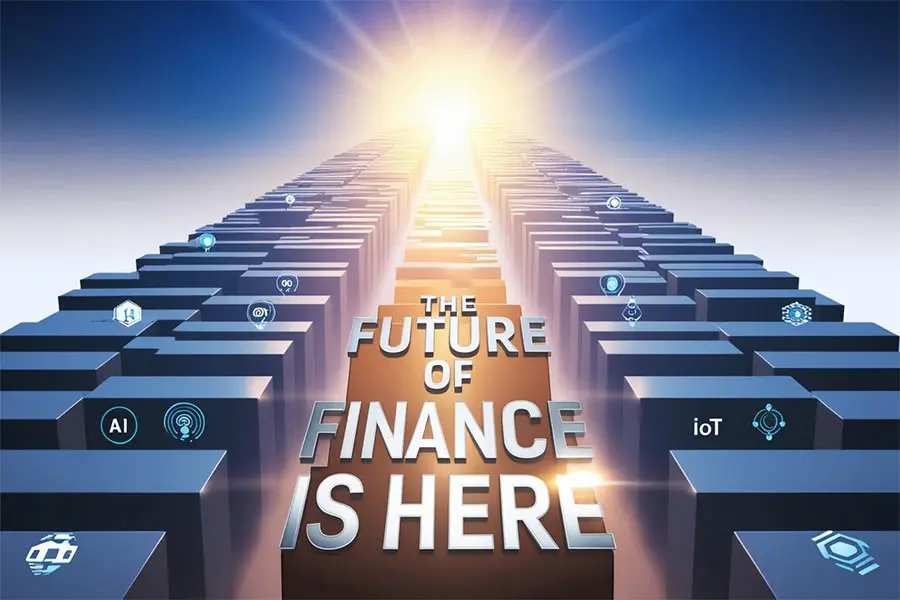
Potential Developments
The future of tokenization and smart contracts is poised for significant advancements, driven by continuous innovation and increasing adoption.
- Integration with AI: Combining Artificial Intelligence with smart contracts can lead to more intelligent and adaptive contract executions, enhancing decision-making processes. AI can analyze vast amounts of data to optimize smart contract conditions and outcomes, making them more responsive to changing circumstances.
- Increased Adoption in Emerging Markets: Tokenization can unlock investment opportunities in regions with untapped potential, fostering economic growth and financial inclusion. Emerging markets can leverage tokenization and smart contracts to attract global investors and streamline local financial systems.
- Decentralized Autonomous Organizations (DAOs): DAOs are expected to play a crucial role in managing tokenized assets and executing smart contracts autonomously, promoting decentralized governance and collaboration. DAOs can democratize decision-making processes, allowing token holders to vote on proposals and manage collective assets without centralized control.
Impact on Global Financial Systems
Tokenization and Smart Contracts have the potential to disrupt traditional financial systems by reducing reliance on centralized institutions. This decentralization promotes greater financial inclusion, as individuals and businesses can access a broader range of financial services without geographical or institutional barriers. According to a report by McKinsey, blockchain and smart contracts could potentially save the financial industry up to $20 billion annually by reducing operational costs and enhancing efficiency.
Emerging Trends and Innovations
- NFTs (Non-Fungible Tokens): NFTs are gaining popularity as unique digital assets representing ownership of specific items, such as art, music, and virtual real estate. The NFT market has exploded, with sales reaching over $17 billion in 2021, demonstrating the vast potential for tokenization in the digital economy.
- Sustainability Focus: There is an increasing emphasis on developing sustainable tokenized projects that prioritize environmental responsibility and social impact. Innovations such as energy-efficient blockchain protocols and the adoption of proof-of-stake (PoS) consensus mechanisms are reducing the carbon footprint associated with tokenization and smart contracts.
- Tokenization Beyond Finance: Future applications of tokenization may extend into sectors like healthcare, education, and energy, enabling innovative solutions and new business models. For example, tokenization in healthcare can facilitate secure and efficient sharing of medical records, while in education, it can enable the certification of academic achievements on the blockchain.
Sustainable Tokenization Practices
As the industry grows, there is a growing focus on making tokenization more environmentally sustainable. Innovations such as energy-efficient blockchain protocols and the adoption of proof-of-stake (PoS) consensus mechanisms are reducing the carbon footprint associated with tokenization and smart contracts.
Pro Tip: Staying abreast of emerging trends and innovations in tokenization and smart contracts will position you to leverage new opportunities and maintain a competitive edge in the evolving landscape.
Blockchain Solutions with Tokenova Services
Tokenova leverages advanced blockchain solutions, integrating the latest technologies to enhance security, scalability, and efficiency for your tokenization initiatives.
Why Choose Tokenova?
When venturing into the realms of Tokenization and Smart Contracts, partnering with a trusted blockchain solutions provider is crucial. Tokenova stands out as a leading consultant company, offering comprehensive blockchain services tailored to your unique needs. With a focus on innovation, security, and compliance, Tokenova ensures that your tokenization and smart contract projects are executed flawlessly, driving your business towards success in the digital economy.

Overview of Tokenova’s Expertise in Blockchain Solutions
Tokenova brings extensive expertise in blockchain technology, specializing in Asset Tokenization with Smart Contracts and smart contract development. Their team of seasoned professionals ensures that your tokenization projects are executed with precision, security, and compliance. Tokenova leverages the latest blockchain advancements to provide scalable and efficient solutions, helping businesses unlock new opportunities and achieve their strategic goals.
Services Offered
Tokenization of Assets
Tokenova facilitates the seamless conversion of your assets into digital tokens, enabling fractional ownership, enhanced liquidity, and broader market access. Whether you’re looking to tokenize real estate, financial instruments, or unique collectibles, Tokenova provides the tools and expertise to bring your vision to life. Their comprehensive approach includes asset valuation, token design, regulatory compliance, and token issuance, ensuring a smooth and compliant tokenization process.
Smart Contract Development
Custom-designed smart contracts tailored to your specific requirements ensure automated, secure, and efficient execution of agreements. Tokenova‘s developers are proficient in creating robust smart contracts that adhere to industry standards and regulatory requirements. From simple automated payments to complex multi-party agreements, Tokenova delivers smart contract solutions that enhance operational efficiency and reduce risk.
Blockchain Consulting
Expert consulting services guide you through the complexities of blockchain integration, helping you strategize and implement effective blockchain solutions. From initial feasibility studies to full-scale deployment, Tokenova offers end-to-end support to ensure your projects succeed. Their consulting services include blockchain strategy development, technology assessment, regulatory compliance guidance, and project management, providing a holistic approach to blockchain adoption.
Why Choose Tokenova?
Experienced Team
Tokenova‘s team comprises blockchain experts with a proven track record in delivering successful tokenization and smart contract projects. Their deep industry knowledge and technical proficiency ensure that your projects are handled with the utmost expertise. Tokenova employs professionals with diverse backgrounds in finance, technology, and law, enabling them to address complex challenges and deliver comprehensive solutions.
Comprehensive Solutions
From initial consultation to deployment and ongoing support, Tokenova offers end-to-end blockchain solutions that cater to every aspect of your project. Their holistic approach ensures that all elements of your tokenization and smart contract initiatives are seamlessly integrated and optimized for success. Tokenova provides continuous monitoring and maintenance services, ensuring that your blockchain solutions remain secure, compliant, and efficient over time.
Proven Track Record
With numerous successful projects across various industries, Tokenova has established itself as a reliable partner in the blockchain space. Their portfolio showcases a diverse range of applications, highlighting their ability to adapt and innovate in a rapidly evolving market. Tokenova has helped clients achieve significant milestones, such as launching successful token sales, automating complex financial agreements, and enhancing supply chain transparency through blockchain solutions.
Call to Action: Transform your assets into digital tokens today with Tokenova. Contact us now to unlock the full potential of tokenization and smart contracts for your business.
Conclusion
Tokenization and Smart Contracts are at the forefront of a financial revolution, offering unprecedented opportunities for efficiency, transparency, and accessibility. By converting assets into digital tokens and automating contractual agreements, these technologies are dismantling traditional barriers and democratizing access to high-value markets. As industries across the globe embrace these innovations, the potential for growth and transformation is immense. Whether you’re an investor seeking new opportunities, a business owner aiming to streamline operations, or an enthusiast eager to explore blockchain advancements, the synergy between tokenization and smart contracts presents a compelling case for their adoption. Now is the time to explore and leverage these transformative technologies to stay ahead in the rapidly evolving digital economy.
Key Takeaways
- Tokenization transforms physical and intangible assets into digital tokens, enhancing liquidity and enabling fractional ownership.
- Smart Contracts automate the execution of agreements, ensuring security, efficiency, and compliance without the need for intermediaries.
- The synergy between tokenization and smart contracts amplifies their individual benefits, leading to groundbreaking applications across various industries.
- Real-World Applications span sectors like real estate, finance, art, and supply chain management, showcasing the versatility of these technologies.
- Challenges such as regulatory hurdles, technological limitations, and market trust need to be addressed to fully realize the potential of tokenization and smart contracts.
- The future outlook is promising, with continuous innovations and increasing adoption set to redefine global financial systems and beyond.
1. What Role Do Smart Contracts Play in Enhancing Asset Security?
Smart Contracts enhance asset security by ensuring that all transactions are executed automatically and transparently on the blockchain. This reduces the risk of fraud and unauthorized alterations, as the contract’s terms are immutable once deployed. Additionally, smart contracts can incorporate multi-signature authentication and other security protocols to further safeguard assets.
2. How Can Tokenization Impact Emerging Economies?
Tokenization can significantly impact emerging economies by providing access to global investment markets, fostering financial inclusion, and enabling local businesses to raise capital more efficiently. By lowering entry barriers and enhancing liquidity, tokenization can stimulate economic growth, attract foreign investments, and create new opportunities for entrepreneurs and investors alike.
3. What Are the Environmental Implications of Blockchain-Based Tokenization?
While blockchain technology offers numerous benefits, it can also have environmental implications, particularly related to energy consumption in proof-of-work (PoW) consensus mechanisms. However, the industry is increasingly adopting more sustainable practices, such as transitioning to proof-of-stake (PoS) and other energy-efficient consensus algorithms, to mitigate environmental impacts and promote sustainable tokenization practices.




